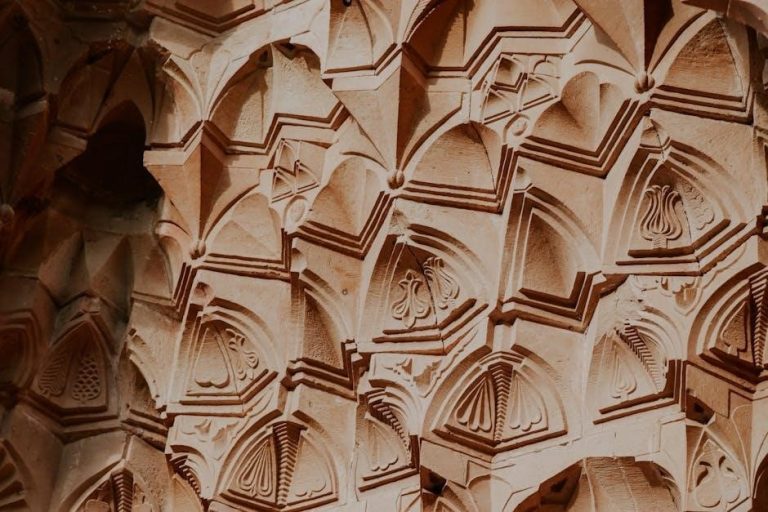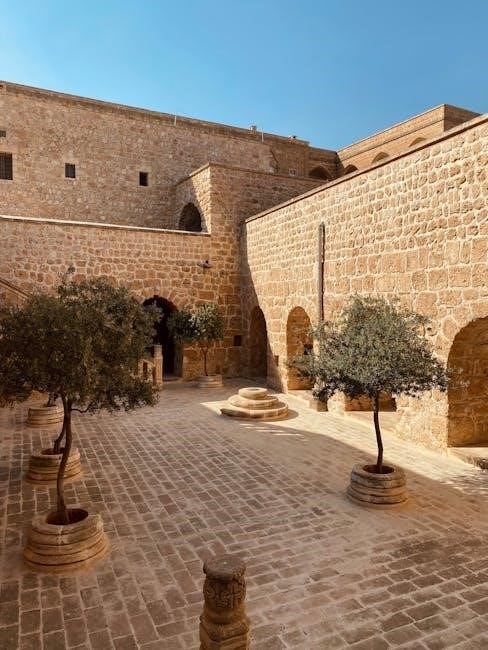
The Old Testament is filled with divine interventions, validating God’s messengers, authenticating His message, and demonstrating His power. These miracles showcase His mercy, faithfulness, and judgment, encouraging faith and revealing His character.
Definition and Purpose of Miracles in the Old Testament
Miracles in the Old Testament are extraordinary events where God intervenes in natural processes, defying human understanding and scientific explanation. These divine acts are intentional and purposeful, serving to validate God’s messengers, authenticate His message, and demonstrate His sovereignty. They often delivered His people from oppression, showcasing His mercy and faithfulness. Miracles also highlighted God’s judgment against disobedience and evil, emphasizing His holiness and justice. Ultimately, they were meant to inspire faith, trust, and reverence for God, revealing His character and reinforcing His covenant promises to His people. Through miracles, God made His presence and power evident in the lives of individuals and nations, shaping Israel’s history and spiritual identity.
Overview of Key Miracles in the Old Testament
The Old Testament records a wide array of miracles, showcasing God’s divine power and intervention in human history. From the creation of the world in Genesis to the prophetic acts of Elijah and Elisha, these events highlight God’s sovereignty and purpose. Key miracles include the Great Flood, the confusion of tongues at Babel, the parting of the Red Sea, and the fall of Jericho. These acts demonstrate God’s mercy, judgment, and faithfulness, often serving to deliver His people or authenticate His messengers. The miracles are well-documented, providing a rich tapestry of divine intervention that inspires faith and underscores God’s active role in shaping human destiny. They remain central to understanding the Old Testament’s theological and historical narrative.

Miracles in the Book of Genesis
The Book of Genesis highlights key miracles like Creation, Enoch’s translation, the Great Flood, and the confusion of tongues at Babel, showcasing God’s divine power and intervention.
Creation (Genesis 1:1-27)
The creation narrative in Genesis 1:1-27 is the foundational miracle of the Old Testament, showcasing God’s divine power and sovereignty. This act of bringing order from chaos demonstrates God’s purposeful design and authority over the universe. The separation of light from darkness, the formation of land and sea, and the creation of life in all its forms highlight His wisdom and creativity. The climax of creation is the formation of humanity in God’s image, emphasizing human dignity and stewardship. This miracle sets the stage for understanding God’s relationship with His creation and serves as a reminder of His ultimate control over all things, reinforcing faith in His providence and plan.
Enoch’s Translation (Genesis 5:24)
Enoch’s translation is one of the most unique miracles in the Old Testament, as he was taken by God without experiencing death. Genesis 5:24 states, “Enoch walked with God, and he was not, for God took him.” This act highlights God’s power to intervene in human life in extraordinary ways. Enoch’s righteous life and close relationship with God made him worthy of this divine intervention. His translation serves as a testament to God’s ability to transcend the natural order of life and death. It also symbolizes the ultimate hope of believers to be united with God, making it a significant miracle that underscores faith, obedience, and God’s mercy. This event remains a profound example of divine favor and supernatural intervention in human history.
The Great Flood (Genesis 7:17-24)
The Great Flood, recorded in Genesis 7:17-24, is one of the most catastrophic miracles in the Old Testament. It was a divine judgment on humanity’s wickedness, sparing only Noah, his family, and the animals on the ark. The floodwaters devastated the earth, destroying all life except those preserved by God’s mercy. This miracle underscores God’s power to reshape creation and His commitment to justice. It also highlights Noah’s obedience and faith, serving as a testament to God’s ability to intervene dramatically in human history. The Flood remains a profound example of divine judgment and redemption, illustrating God’s sovereignty over all creation.

Confusion of Tongues at Babel (Genesis 11:1-9)
The confusion of tongues at Babel, recorded in Genesis 11:1-9, is a significant Old Testament miracle. Humanity, united in pride, attempted to build a tower reaching heaven, defying God’s authority. In response, God miraculously confused their language, scattering the people and halting construction. This divine intervention demonstrated God’s sovereignty and judgment against human arrogance. The miracle resulted in the division of nations and languages, reshaping human history. It serves as a reminder of God’s power to interrupt human plans and emphasize His ultimate authority over creation. This event remains a pivotal moment in biblical history, illustrating God’s ability to act decisively in response to humanity’s rebellion.

Miracles Involving the Patriarchs

Miracles involving the patriarchs, such as Abraham and Sarah’s miraculous childbirth of Isaac, demonstrate God’s faithfulness and divine intervention in the lives of His chosen leaders.
Abraham and Sarah’s Miraculous Childbirth (Isaac)
The miraculous birth of Isaac to Abraham and Sarah, as recorded in Genesis 18:9-14 and 21:1-7, stands as a profound demonstration of God’s faithfulness and power. Despite Sarah’s advanced age and barrenness, God fulfilled His promise, making her a mother at 90 years old. This miracle underscored God’s covenant with Abraham and His plan to establish a nation through Isaac. The birth of Isaac symbolized hope, divine sovereignty, and the fulfillment of God’s promises, even in seemingly impossible circumstances. This event remains a cornerstone of faith, illustrating God’s ability to intervene miraculously in human lives and His unwavering commitment to His people.
Miracle of Abimelech’s Household (Genesis 20:17-18)
In Genesis 20:17-18, Abraham prayed for Abimelech, king of Gerar, and his household after God had afflicted them with infertility as judgment for taking Sarah. Abraham’s intercession led to a miraculous healing, restoring fertility and resolving the crisis. This miracle demonstrated Abraham’s role as a mediator and intercessor, highlighting God’s mercy and willingness to forgive. The event also showcased God’s direct intervention in human affairs to uphold justice and protect His people. Through this miracle, God reinforced Abraham’s faith and trust in His sovereignty, proving His ability to reverse even the most severe afflictions. This act underscored the themes of prayer, divine judgment, and redemption central to the Old Testament narrative.

Miracles in the Book of Exodus
The Book of Exodus contains profound miracles, such as the Ten Plagues and the parting of the Red Sea, showcasing God’s divine power and deliverance of Israel.
The Ten Plagues of Egypt
The Ten Plagues of Egypt, recorded in Exodus, were a series of miraculous judgments sent by God to compel Pharaoh to free the Israelites. Each plague targeted specific aspects of Egyptian life and religion, showcasing God’s power over creation. The plagues included the turning of water into blood, the infestation of frogs, lice, flies, the death of livestock, boils, hail, locusts, darkness, and finally, the death of every firstborn son. These miracles demonstrated God’s authority over all creation and His determination to deliver His people from bondage. The plagues culminated in the Passover, where the Israelites were spared, and Pharaoh was forced to release them, marking a pivotal moment in Israel’s history and faith.
Parting of the Red Sea (Exodus 14:13-31)
The Parting of the Red Sea is one of the most iconic miracles in the Old Testament. As the Israelites fled Egypt, they were trapped between the advancing Egyptian army and the Red Sea. Moses, by God’s instruction, stretched out his staff over the water, and a strong east wind divided the sea, creating a dry path. The Israelites crossed safely, while the Egyptians, pursuing them, were drowned when the sea returned to its place. This miracle demonstrated God’s power over nature, His faithfulness to His people, and His willingness to deliver them from oppression. It remains a cornerstone of faith and a testament to divine intervention.

Miracles Performed by Prophets
Prophets like Elijah and Elisha performed extraordinary miracles, confirming God’s power and purpose. Their acts, such as raising the dead and healing the sick, showcased divine authority and inspired faith.
Elijah’s Miracle of Raising the Widow’s Son (1 Kings 17:17-24)
During a severe famine, Elijah encountered a widow whose son fell gravely ill and died. Moved by her distress, Elijah prayed fervently to God, asking for the boy’s life to be restored. Through Elijah’s faith and prayer, God miraculously revived the child, restoring life to his body. This miracle not only demonstrated Elijah’s close relationship with God but also served as a testament to God’s power over life and death. The widow, overwhelmed with gratitude, confessed her faith in the God of Israel. This act highlighted God’s compassion and ability to intervene in desperate situations, reinforcing His divine authority and care for His people.
Elisha’s Miracles (2 Kings 2-13)
Elisha, as a prominent prophet, performed numerous miracles that showcased God’s power and compassion. One notable miracle was the multiplication of oil for a widow, ensuring her financial survival. He also healed Naaman, a Syrian commander, from leprosy, demonstrating God’s grace to Gentiles. Elisha raised the son of the Shunammite woman from death, highlighting his divine authority. Additionally, he purified a poisoned stew, making it safe for consumption, and fed a hundred men with just a few loaves of bread. Finally, after his death, a man was resurrected when his body touched Elisha’s bones, proving God’s enduring power through His servant. These miracles underscored Elisha’s role as a vessel of divine intervention.
Jonah and the Great Fish (Jonah 1:17)
One of the most remarkable miracles in the Old Testament is Jonah’s survival inside a great fish. After Jonah attempted to flee from God’s command, he was thrown overboard during a storm and swallowed by a massive fish. Miraculously, Jonah remained alive for three days and nights within the fish’s belly, symbolizing death and resurrection. This divine intervention allowed Jonah to repent and fulfill his mission to Nineveh. The miracle of the great fish serves as a testament to God’s power over creation and His ability to rescue and redirect His servants. It also prefigures the resurrection of Jesus Christ, emphasizing the thematic connection between the Old and New Testaments.

Miracles in the Book of Joshua
The Book of Joshua records remarkable miracles, such as the fall of Jericho and the sun standing still, demonstrating God’s power and support for the Israelites.

The Fall of Jericho (Joshua 6:1-27)
The fall of Jericho is one of the most remarkable miracles in the Old Testament; God commanded Joshua to march around the city walls for seven days, with the ark of the covenant and priests blowing trumpets. On the seventh day, after seven circuits, the people shouted, and the walls miraculously collapsed. This divine intervention allowed the Israelites to conquer the city without conventional warfare. The miracle demonstrated God’s faithfulness to His promises and His supernatural power over human impossibilities. It also highlighted the importance of obedience and trust in God’s unconventional strategies. This event remains a testament to God’s ability to deliver His people in extraordinary ways.
The Sun Standing Still (Joshua 10:1-15)
The miracle of the sun standing still is a extraordinary event where God intervened in time and nature to aid the Israelites in battle. When Joshua prayed for more daylight to complete the defeat of the Amorites, God caused the sun and moon to halt their movement. This unprecedented phenomenon allowed the Israelites to secure a complete victory. The specificity of the event, recorded in detail, underscores God’s precise control over creation. It also highlights His commitment to fulfilling His promises and protecting His people. This miracle remains one of the most awe-inspiring demonstrations of divine power in the Old Testament, showcasing God’s ability to manipulate time and nature for His purposes.

Miracles in the Book of Judges
The Book of Judges records remarkable miracles, such as Samson’s extraordinary strength and Gideon’s fleece, demonstrating God’s divine intervention and faithfulness to His people during times of crisis.
Samson’s Strength (Judges 13-16)
Samson’s extraordinary strength, granted by God, was a remarkable miracle. He was born to a barren woman, and his strength was a divine gift to deliver Israel from Philistine oppression. His feats included slaying a lion with his bare hands and destroying the temple of Dagon, killing thousands of Philistines. Samson’s story highlights God’s power and purpose, even amidst human weakness. His life serves as a testament to divine intervention and the fulfillment of God’s plan, showcasing His mercy and strength through a chosen vessel, despite personal struggles.
Gideon’s Miracle of the Fleece (Judges 6:36-40)
Gideon’s miracle of the fleece was a divine confirmation of God’s presence and plan. When Gideon doubted his calling, he asked God for a sign: dew on the fleece but not the ground, and vice versa. Both requests were miraculously fulfilled. This miracle demonstrated God’s patience and willingness to affirm His will to Gideon. It also highlighted Gideon’s faith and the necessity of trusting God’s guidance. The fleece miracle served as a clear authentication of Gideon’s role as a deliverer of Israel, showcasing God’s personal involvement in human affairs and His ability to provide assurance in times of uncertainty.
